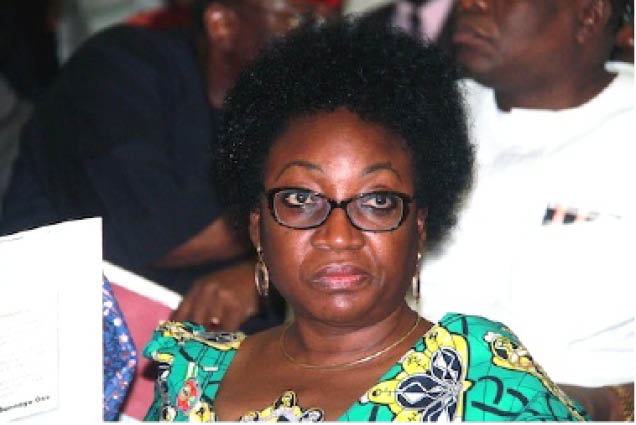Oyo-Ita decries ‘alarming skills-deficiency’ among workers
The Head of the Civil Service of the Federation (HoCSF), Mrs. Winifred Oyo-Ita, has said the findings of a survey showed that civil servants skills deficiency was alarming, hence the need for training and retraining to address the deficiencies. She made this known on Tuesday in Abuja while unveiling the findings of the Training Needs […]

Mrs. Winifred Oyo-Ita , Former Head of Civil Service of the Federation.
The Head of the Civil Service of the Federation (HoCSF), Mrs. Winifred Oyo-Ita, has said the findings of a survey showed that civil servants skills deficiency was alarming, hence the need for training and retraining to address the deficiencies.
She made this known on Tuesday in Abuja while unveiling the findings of the Training Needs Assessment, (TNA) at a meeting with the Chief Executive Officers of Manpower Development Institutions, (MDIs).
The TNA survey was administered on 1,076 civil servants between grade levels 7-17, out of which 670 responded.
According to her, the earlier trainings accorded to civil servants did not meet the peculiar needs of the public service.
She said that a Structured Assessment-Based Training Programme (SMAT-P), and Leadership Enhancement and Development Programme (LEAD-P), both of which are targeted at training at least 25,000 civil servants by 2020, will kick off in May.
“The first and second batch of 3,500 civil servants will be trained in May 2019. The target is to train at least 25,000 civil servants by 2020. This is the first time we will be sitting to do a detailed analogy of what the needs of civil servants according to their own interpretation of what their needs are.
“All along, the trainings that have been done have always come from outside or more or less imposed on us. But now, civil servants were given an opportunity through a survey programme. From the findings we got, we have discovered that the notions and preconceptions that people have about civil servants are wrong. A good number of civil servants are quite computer literate,” she said.
She added that the kind of trainings the workers need should be such that will match their areas of specialty.
“A lot of civil servants after the initial training they get when coming in, they are left like that. Even when they are promoted, they are not trained further,” she said.
